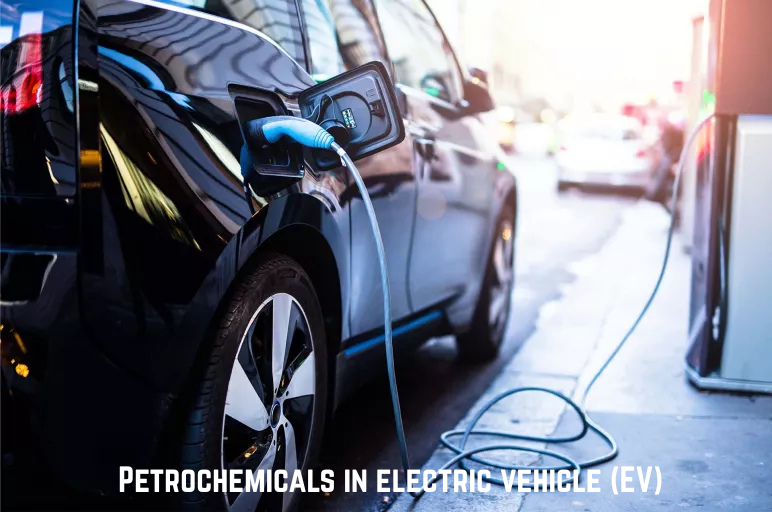Petrochemicals play a crucial role in electric vehicle (EV) manufacturing by providing essential materials for lightweighting, energy storage, and durability. Here’s how:
1. Lightweight Materials
- Plastics and Composites: Petrochemical-derived plastics like polypropylene and polycarbonate are used to create lightweight vehicle components, improving energy efficiency and driving range.
- Carbon Fiber Reinforced Polymers (CFRPs): Used in the chassis and body to reduce weight without compromising strength.
2. Battery Components
- Electrolytes: Petrochemicals like ethylene carbonate and propylene carbonate are critical in lithium-ion battery electrolytes.
- Separators: Polyethylene (PE) and polypropylene (PP) films, derived from petrochemicals, are used as battery separators.
3. Insulation and Safety
- Wire and Cable Insulation: Plastics such as PVC and Teflon, derived from petrochemicals, ensure electrical safety in EVs.
- Thermal Management: Petrochemical-based materials are used for thermal insulation and heat dissipation in EV batteries.
4. Interior and Exterior Components
- Dashboards and Trim: Materials like ABS (Acrylonitrile Butadiene Styrene) and polyurethane provide durable and lightweight interiors.
- Bumpers and Panels: Petrochemical-derived plastics are used for impact resistance and design flexibility.
5. Tires
- Synthetic Rubber: Derived from petrochemicals, it ensures durability, traction, and energy efficiency in EV tires.
6. Energy Storage Systems
- Hydrogen Fuel Cells: Petrochemicals contribute to the production of membranes and other components for hydrogen-powered EVs.
7. Adhesives and Sealants
- Used extensively in EV assembly, these petrochemical-based products ensure structural integrity and reduce noise and vibration.
8. Recycling and Sustainability
- Advances in petrochemical technologies enable the development of recyclable and reusable materials for EV production, aligning with sustainability goals.
9. Charging Infrastructure
- Cables and Connectors: Petrochemical-based materials provide durability and safety in EV charging stations.










